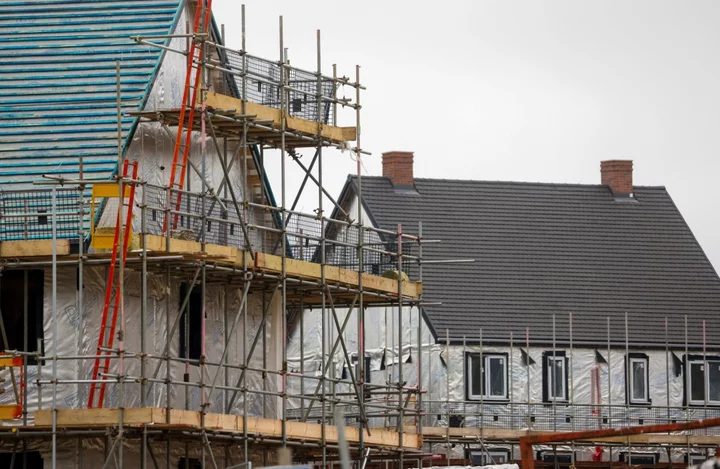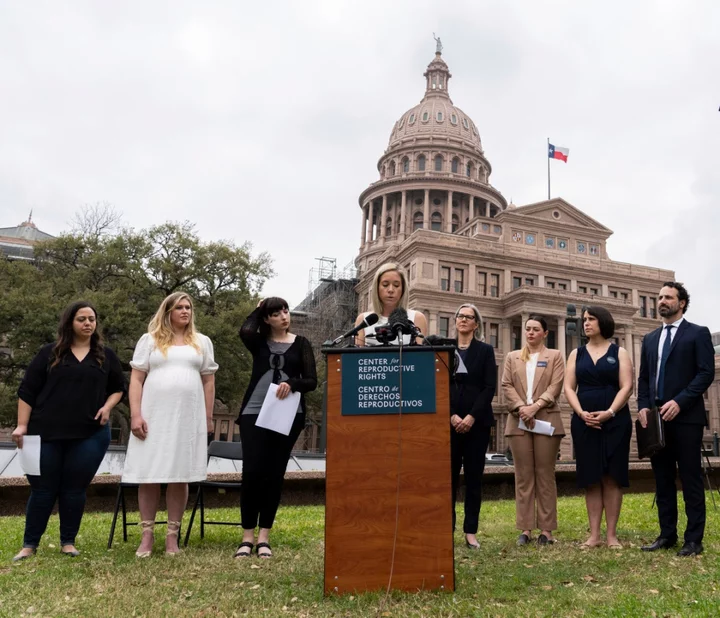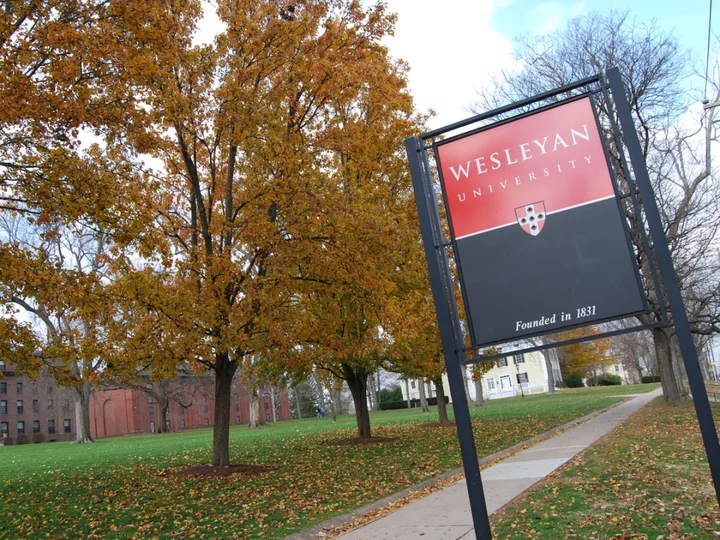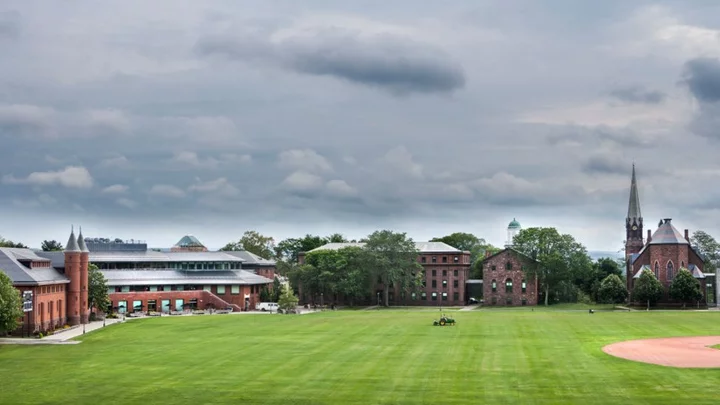
Who is Bron Studios' CEO? Company behind 'The Idol' and 'Joker' files for bankruptcy, Internet says 'The Idol did them in'
'Hollywood math strikes again!' read one tweet
2023-07-20 15:29

'Dr Pimple Popper' Season 9: Where is Felipe now? Dr Sandra Lee treats patient's painful genetic skin condition to save him from losing his job
Felipe, a photographer with very dry skin, seeks treatment from Dr Sandra Lee to avoid losing his job
2023-07-20 14:46

Can 12 Strangers Agree on Climate Policy? The UK Wants to Find Out
In 2007, a climate change experiment captured the imagination of 60,000 people all over the planet. World Without
2023-07-20 13:00

Texas women suing over anti-abortion law give historic and heartbreaking testimony in a landmark court case
In March, unable to legally obtain abortion care in Texas, Samantha Casiano was forced to carry a nonviable pregnancy to term, and gave birth to a three-pound baby who died hours later. Ms Casiano is among 13 women denied emergency abortion care under state law who are suing the state in a landmark case that is now in front of a Texas judge. In harrowing, historic courtroom testimony in Austin on 19 July, Ms Casiano and two other plaintiffs described their agony, isolation and heartbreak as they detailed their traumatic, life-threatening pregnancies and the state’s failure to care for them. As she described her experience to the court through tears, Ms Casiano vomited from the witness stand. “I watched my baby suffer for four hours,” she said in her testimony. “I am so sorry I couldn’t release you to heaven sooner. There was no mercy for her.” Abortion rights legal advocacy group Center for Reproductive Rights Texas filed the lawsuit on behalf of the women in March to force Texas authorities to clarify emergency medical exceptions to the state’s overlapping anti-abortion laws, marking the first-ever case brought by pregnant patients against such laws. Their testimony has underscored the depth of impacts from Texas laws and similar anti-abortion laws across the country, with abortion access stripped away for millions of Americans who are now exposed to dangerous legal and medical minefields during their pregnancies. The conflicting exemptions for medical emergencies in Texas have resulted in widespread confusion among providers and hospitals fearing legal blowback or severe criminal penalties, according to abortion rights advocates. Healthcare providers in the state found in violation of those laws could lose their medical license, face tens of thousands of dollars in fines, or receive a sentence of life in prison. The plaintiffs “suffered unimaginable tragedy” directly because of the state’s anti-abortion laws, Center for Reproductive Rights attorney Molly Duane said in her opening arguments. Texas officials and the state’s medical board have “done nothing” to clarify the law, she said. “I feel like my hands are tied,” said Houston obstetrician-gynecologist Dr Damla Karsa. “I have the skill, training and experience to provide care but I’m unable to do so. It’s gut-wrenching. I am looking for clarity, for a promise that I’m not going to be prosecuted for providing care.” Attorneys for the state have sought to dismiss the case altogether, arguing in court filings that the women lack standing to challenge the law because it is ultimately uncertain they will face similar complications again, that their “alleged prospective injuries are purely hypothetical”, and that some of the plaintiffs admitted they have since “struggled to become pregnant” again after their traumatic experiences. Amanda Zurawski, the lead plaintiff in the case, is still hoping to become pregnant after her life-threatening pregnancy. She called the state’s argument “infuriating and disgusting and ironic.” “Do they not realise the reason why I might not be able to get pregnant again is because of what happened to me as a result of the laws that they support?” she told the court. “Anybody who’s been through infertility will tell you it is the most isolating, grueling, lonely, difficult thing a person can go through.” ‘I wished I was dreaming. I knew I wasn’t’ Ms Casiano, a mother of four, was hoping for a girl. When she visited her physician for a checkup last September, “all of a sudden the room went cold” and quiet, she testified. Her daughter was diagnosed with anencephaly, a fatal birth defect in which a baby is born without parts of a brain or skull. “My first thought was … ‘maybe it’s a surgery, maybe she can be fixed,’ and then she said, ‘I’m sorry, but your daughter is incompatible with life, and she will pass away before or after birth,’” Ms Casiano said. “I felt cold,” she said. “I was hurt. I wished I was dreaming. I knew I wasn’t. I just felt lost.” A case worker at her obstetrician’s office gave her a pamphlet with funeral homes. She was prescribed antidepressants. She could not be referred for abortion care anywhere in the state. Texas was the first to implement a near-total ban on abortion, months before the US Supreme Court struck down the constitutional right to abortion last June, a decision that triggered a wave of state laws and legislation from anti-abortion lawmakers and governors to restrict care and threaten providers with criminal penalties. Amanda Zurawski endured several rounds of fertility treatments, tests, surgeries and misdiagnoses before learning she was pregnant in May of last year. “We were at first in shock … we were over-the-moon excited,” Ms Zurawski said. But her obstetrician discovered that she dilated prematurely, and soon after her membranes ruptured, draining amniotic fluid and endangering the life of her expected child. Doctors informed her there was nothing they could do under what was recently enacted state law, despite knowing with “complete certainty we were going to lose our daughter,” she said. The condition led to life-threatening sepsis. Doctors ultimately induced labor. Her daughter, which she named Willow, was not alive when she delivered. Ms Zurawski and her husband are still trying for pregnancy, but the trauma has closed one of her fallopian tubes, and a doctor had to surgically reconstruct her uterus. They also are considering in vitro fertilization, surrogacy and adoption. She previously testified to members of Congress about her experience, a story she will continue to tell, even if it is “excruciating” to do so, she told the Texas courtroom. “I know that what happened to me is happening to people all over the country. … So many people are being hurt by similarly restrictive bans,” she said. She has spoken out “because I can, and I know a lot of people who are experiencing or will experience something similar who can’t speak out, and it’s for those people I will,” she said. Healthcare providers caring for pregnant patients in the months after the Supreme Court’s decision to overturn Roe v Wade have faced severe obstacles for providing standard medical care in states where abortion is effectively outlawed, leading to delays and worsening and dangerous health outcomes for patients, according to a first-of-its-kind report released earlier this year. Individual reports from patients and providers like those named in the Texas lawsuit have shed some light on the wide range of harm facing pregnant women in states where access to abortion care is restricted or outright banned. But reporting from the University of California San Francisco captures examples from across the country, painting a “stark picture of how the fall of Roe is impacting healthcare in states that restrict abortion,” according to the report’s author Dr Daniel Grossman. More than a dozen states, mostly in the South, have effectively outlawed or severely restricted access to abortion care after the Supreme Court’s decision in Dobbs v Jackson Women’s Health Organization last June. The decision has also opened new legal challenges, ones that could once again reshape the future of abortion access in America, while anti-abortion lawmakers and Republican candidates face a public that is overwhelmingly against such bans. ‘I don’t feel safe to have children in Texas anymore’ Ashley Brandt sent a picture of an ultrasound to her husband when she found out she was pregnant with twins. But after her 12-week ultrasound last May, doctors discovered one of the twins had acrania, in which the skull of the fetus is not formed, and brain tissue is exposed to amniotic fluid. The condition is fatal. Despite no chance of the twin’s survival, Ms Brandt was not eligible under Texas law for a procedure called a selective fetal reduction; Twin A still had some signs of life, like muscle spasms and cardiac activity. They traveled to neighbouring Colorado for care, and she returned home the day after the procedure. She gave birth to her daughter in November. “If I had not gone out of state and just done what was legal in Texas, my daughter … would likely have been in the [neonatal intensive care unit],” she said. “All of my ultrasounds leading up to labor I would have had to watch twin A … deteriorate more and more, every ultrasound. … I would have to give birth to an identical version of my daughter without a skull, without a brain, and I would have to hold her until she died, and I would have to sign a death certificate, and hold a funeral.” She said the state has failed to account for medical emergencies like hers. “I don’t feel safe to have children in Texas anymore,” she said. “It was very clear that my health didn’t really matter, that my daughter’s health didn’t really matter.” Read More ‘I felt I couldn’t tell anyone’: The stigma of abortion keeps women silent. It’s time for us to shout Ohio voters are likely to decide the future of abortion rights One year after Roe v Wade fell, anti-abortion laws threaten millions. The battle for access is far from over
2023-07-20 08:59

Self-healing metal? It's not just the stuff of science fiction
By Will Dunham WASHINGTON In the 1991 film "Terminator 2: Judgment Day," a malevolent time-traveling and shape-shifting android
2023-07-20 04:22

Traveling In A Van This Summer? These 12 Essentials Will Make Your Time On The Road Easier
Before you hit the highway, be sure to stock up on these van life essentials that’ll make your next adventure even more enjoyable.
2023-07-20 02:15

Elite liberal arts university ends legacy admissions in wake of Supreme Court ruling on affirmative action
An elite liberal arts university has taken steps in re-evaluating its admission process by ending legacy preferences following the Supreme Court’s decision to strike down affirmative action. Wesleyan University, a private college in Connecticut, announced in a letter on Wednesday that terminating its use of legacy admissions would benefit diversity on campus and cited the Court’s ruling as a catalyst in the decision. “In the wake of the recent Supreme Court decision regarding affirmative action, we believe it important to formally end admissions preference for ‘legacy applicants,’” Wesleyan University President Michael S Roth wrote. “We still value the ongoing relationships that come from multi-generational Wesleyan attendance, but there will be no ‘bump’ in the selection process.” The school is the first prominent higher education institution to end legacy admissions following the Court’s decision to end affirmative action in June. Going forward, Wesleyan said it will promote a diverse student body by recruiting students from areas across the US outside of big cities and coasts, recruiting veterans and investing in a pipeline to recruit community college graduates. They also plan to increase financial aid support by normalising a three-year option, creating a scholarship program to recruit and support undergraduates from Africa and developing more free-credit bearing courses online. In his letter, Mr Roth clarified that an applicant’s connection to the university has never guaranteed them a spot and family members of alumni are admitted on their own merits “as has been almost always the case for a long time.” The announcement marks Wesleyan’s formal ending of any legacy-based admissions. Wesleyan joins a small group of other colleges and universities that have ended legacy admissions like Amherst College which concluded legacy preference in 2021, John Hopkins University which made the decision in 2020 and Massachusetts Institute of Technology (MIT) which has never considered legacy. For more than 20 years, colleges and universities have used affirmative action to help establish a diverse pool of accepted students. Race is not used as the sole factor in determining a student’s acceptance but it can be considered if there are two applicants with nearly identical qualifications that meet or exceed the school’s application standard. Mr Roth echoed this in his letter, saying Wesleyan “has never fixated on a checked box indicating a student’s racial identification” and has always taken a “holistic view” by looking at applicants’ records, letters of recommendation, college essays and more. But in a 6-3 decision last month, the Court struck down the long-used tool in two consolidated cases: Students for Fair Admissions v Harvard and Students for Fair Admissions v University of North Carolina. Now, institutions of higher education can no longer consider race as a factor unless a student volunteers information about their race or culture in their personal essay. Advocates of affirmative action called on colleges and universities to re-evaluate their admissions processes and establish other methods of cultivating a diverse campus. President Joe Biden encouraged schools to “not abandon their commitment to ensuring student bodies of diverse backgrounds” and directed the Department of Education to analyse practices that hold diversity back. Those practices include legacy admissions which Mr Biden said, “expands privilege instead of opportunity.” Read More Supreme Court strikes down affirmative action, banning colleges from factoring race in admissions Slim majority of Americans support Supreme Court’s affirmative action ruling, but most believe politics rules the court Harvard sued over ‘legacy admissions’ after Supreme Court targets affirmative action Biden condemns Supreme Court striking down affirmative action: ‘This is not a normal court’
2023-07-20 00:45

5 European Princesses Who Are Preparing to Reign
In the coming decades, five princesses are expected to ascend the thrones of Belgium, the Netherlands, Norway, Spain, and Sweden.
2023-07-20 00:21

Wesleyan University: Top US college says it will end 'legacy' admissions
The university says it is "important" to end the policy, seen as a perk for the white and wealthy.
2023-07-19 23:58

Pablo Torre Shocks 'Around the Horn' Panel By Revealing He's a 'Hand Lotion in the Hair Guy Now'
VIDEO: Pablo Torre and Bob Ryan reveal all their beauty tips on Around the Horn.
2023-07-19 20:27

Football Girls: Sporty Spice joined by Self Esteem and more on England Women's World Cup song
Football-lover Melanie C leads the all-female troupe on the footie anthem.
2023-07-19 18:47

'AGT' Season 18: Fans hail Baltimore drummer Timothy Fletcher's 'original' talent but call him out over his 'pathetic sob story'
Timothy Fletcher, 26, carries a poignant story that serves as both his motivation and a heartfelt tribute to a dear friend
2023-07-19 11:53
